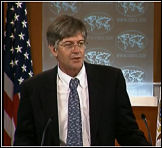![By User:Lunarsurface (Own work) [GFDL (http://www.gnu.org/copyleft/fdl.html), CC-BY-SA-3.0 (http://creativecommons.org/licenses/by-sa/3.0/) or CC-BY-SA-2.5-2.0-1.0 (http://creativecommons.org/licenses/by-sa/2.5-2.0-1.0)], via Wikimedia Commons http://commons.wikimedia.org/wiki/File%3ACitgo_sign_and_Yawkey_way.jpg By User:Lunarsurface (Own work) [GFDL (http://www.gnu.org/copyleft/fdl.html), CC-BY-SA-3.0 (http://creativecommons.org/licenses/by-sa/3.0/) or CC-BY-SA-2.5-2.0-1.0 (http://creativecommons.org/licenses/by-sa/2.5-2.0-1.0)], via Wikimedia Commons http://commons.wikimedia.org/wiki/File%3ACitgo_sign_and_Yawkey_way.jpg](https://www.exportlawblog.com/images/citgo.jpg)
With the calendar turning to September, Sen. Mary Landrieu will be displayed prominently in election media coverage as an incumbent in the proverbial hot seat. The most intriguing fodder her opponents have used against her has been her curious opposition to the Venezuela Defense of Human Rights and Civil Society Act of 2014. The House passed its version by voice vote in May, but the Act has stalled in the Senate principally because Landrieu’s opposition has derailed others from bringing the Act to vote through unanimous consent.
The Act includes sanctions against individuals and entities associated with the Venezuelan government that the President determines committed, directed or “materially assisted, sponsored, or provided significant … support for” those who have committed or directed human rights abuses against anti-government protestors in that country. Like many similar sanctions bills, Congress would give the President wide discretion in determining whether persons meet standards like “materially assisted” or provided “significant” support. The Act would certainly not require the President to designate any company affiliated with the Venezuelan government as an SDN and, as a result, block their U.S. assets.
Sen. Landrieu, however, has opposed the bill out of fear that 2,000 workers at a Citgo oil refinery in Louisiana may be at jeopardy. She has said that “once a simple sentence that protects these hard working Louisianans is added to the bill, I will be happy to support the legislation.” So, what would Sen. Landrieu’s “simple sentence” look like? It can’t possibly be a carve out for 2,000 workers at a Louisiana Citgo refinery; then every member of Congress with a Citgo presence in their state would want similar protection for their constituents. It can’t possibly be a carve out to protect any U.S. companies owned by a Venezuelan parent, like Citgo is; then the sanctions would be bereft of any heft to affect possible change in Venezuela.
This week, Sen. Marco Rubio entered the fray in a letter to Sen. Harry Reid to ensure the Act is brought to the Senate floor for a vote over Sen. Landrieu’s opposition. In his letter, Sen. Rubio described the Act as “target[ing] individuals only and pose[] no threat to American jobs or Venezuelan firms.” Not so fast, Marco, the Act includes sanctions against “persons.” Someone forgot to tell Sen. Rubio that every OFAC sanctions regime defines persons to mean individuals and entities. Someone also forgot to tell him about the three Citgo storage facilities, hundreds of gas stations and thousands of affiliated jobs the company has in Florida.
One upshot of this situation is that members of Congress don’t understand how U.S. economic sanctions work. It is odd that Sen. Landrieu has stuck her political neck out in a situation where the President would be the one under the Act who would have to designate Petróleos de Venezuela, Citgo’s Venezuelan parent, as an SDN if he determined it met the conditions under the Act. Doing so would not be a decision taken lightly and would have repercussions beyond just Louisiana (ask any Boston Red Sox fan about what would happen to the Citgo sign above left field). It is also odd that Sen. Rubio would put his name to a letter that declares no U.S. jobs would be threatened by these sanctions. The fact is that threat remains under the Act, no matter how unlikely, and the President, not Congress, would be in control of imposing sanctions.
A simple moral to this story is a classroom adage: Read Carefully and Think Critically. Here’s hoping politicians start doing a little bit more of both.
Clif adds: In my somewhat more cynical view, the likelihood that members of Congress will ever “Read Carefully and Think Critically” is exactly equal to the likelihood that I will ever debut as Wotan in a production of The Ring Cycle at the Met.

 Posted by
Posted by  Category:
Category: 


 An Arizona man and his company Marsh Aviation have been
An Arizona man and his company Marsh Aviation have been 

